World War II
World War II has been called, by the Allies, the good war or, in more recent times, the last good war.
Of course, that begs the question as to whether any war is good. Let’s use Augustine’s Just War principles to examine, briefly, the Second World War.
This country suffered an estimated 400,000 casualties, including over 290,000 combat deaths. World-wide, the human cost of the war has been estimated at 50,000,000, including those murdered in the Holocaust. Total expenditures by belligerents have been estimated at $1 trillion, in 1945 dollars.
The United States expended over $341 billion throughout World War II. This includes $50 billion in Lend-Lease supplies sent to Great Britain ($31 billion), the Soviet Union, China, and 35 other nations.
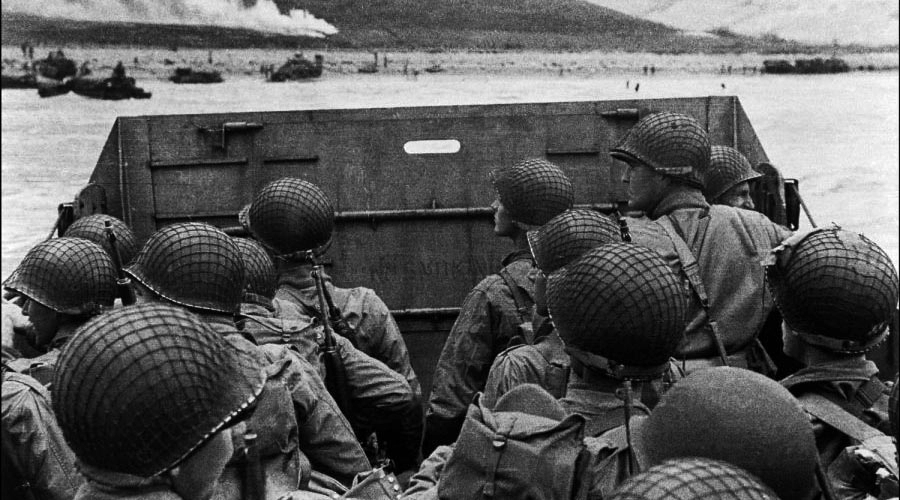 D-Day: Omaha Beach
D-Day: Omaha BeachJus in bello
It’s clear to me that the United States entered into the Second World War for reasons that were, and remain, just. Here’s why:
Legitimate Authority
This “metric” was met, for the duly constituted government of the United States declared war on Japan and, in response to declarations of belligerency by Nazi Germany and Fascist Italy, returned the favor. Congress voted almost-unanimous support for the Declaration of War offered by President Franklin D. Roosevelt.
Just Cause
Japan responded to economic sanctions imposed by United States with their attack against our forces in Hawaii, resulting in over 2,000 deaths. This was not a proportional response. The Axis nations, each in their own right, executed aggressive war against others. Aggression is never, according to Augustine and Luther, justifiable.
Self-defense is the only justification for war. US declarations of war against Germany and Italy were made in response to their declarations.
Comparative Justice
This is a bit murky. Japan not only attacked the US armed forces at Pearl Harbor, but invaded and occupied US territories in the Philippines, Guam, and Wake Island. Since Germany and Italy declared war against the United States, and since those nations had attacked allies of this country, our subsequent assaults on them are justified, given the rationales of Augustine and Luther. On the other hand, should the US have stopped the war once the islands Japan had invaded and occupied were liberated by US and Allied forces.
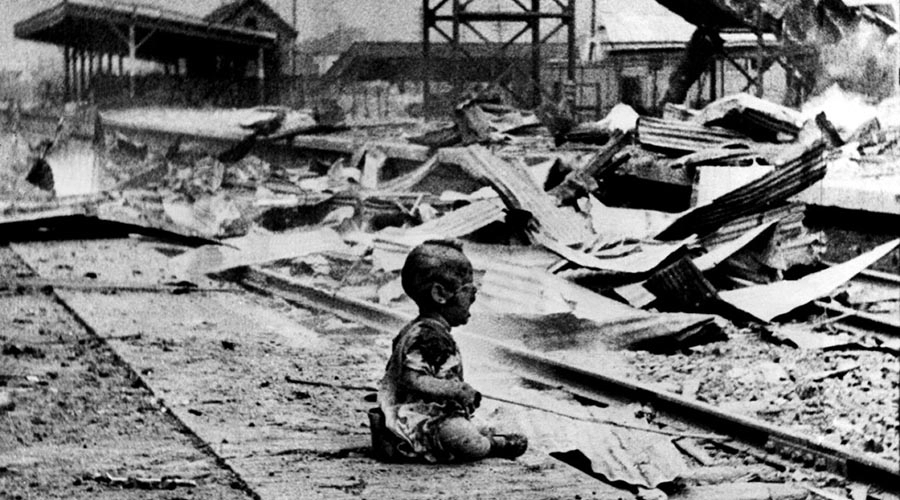 Imperial Japanese Army Assault on Shanghai, 1937
Imperial Japanese Army Assault on Shanghai, 1937A question is, did the policy of Unconditional Surrender violate the principle of comparative justice?
Probability of Success
US political and military leaders believed that this nation could be, would be, successful in prosecuting the war. They didn’t believe it would be easy and they acknowledged the difficulties and risks attending to the effort. But, they were convinced of ultimate victory.
Jus ad bellum
It’s one thing to go to war for just reasons; it’s another thing to fight a just war. The issues are murky from the moment the first bomb is dropped and the first shell is fired. The power and wealth of whole nations disappeared as a result of this war. Millions of people were displaced, starved, and forcibly relocated by authorities. Whole cities were leveled, reduced to mountains of rubble. Was it worthwhile?
Martin Luther might disagree. He taught that, if the cost of righting the wrong is too great, the good Prince acquiesces:
“The prince must at least see that everything does not go to ruin. Where wrong cannot be punished without greater wrong, let him waive his rights, however just they may be.”
Luther’s Works, Volume 46:126
Distinction
Until the fire-bombings of Hamburg, Dresden, and Tokyo, and the atomic bombings of Hiroshima and Nagasaki, US policy was to strike military targets and not general civilian centers. Of course, this is challenged by the fact that, if you bomb transportation centers and industrial plants, are you not also targeting civilians? It seems clear that this debate is practically worthless; non-combatants engaged in enterprises directly supporting military operations, that provide the capability to wage war, are little different from uniformed combatants. What is the difference between a worker in a munitions factory and a uniformed clerk in a headquarters building? If the bombing missions had been deliberately designed or planned to kill the workers instead of the factories (or communications facilities), the argument would be different.
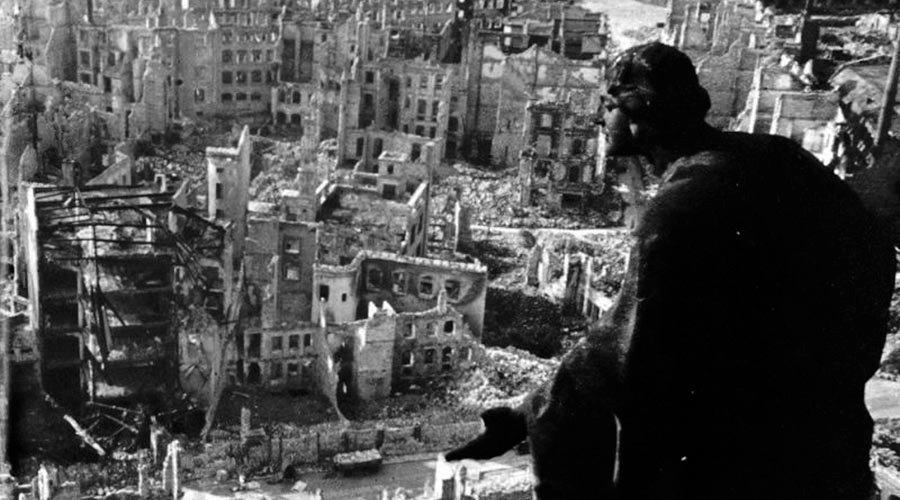 Dresden Fire-Bombing Aftermath, 1945
Dresden Fire-Bombing Aftermath, 1945Military Necessity
Was it militarily necessary to invade North Africa, Italy, France, or the Pacific islands captured by Japan? Of course. The objective was to remove the invader from those lands he had occupied by force. Unless Germany and Japan withdrew their forces voluntarily, it was necessary to remove them by force.
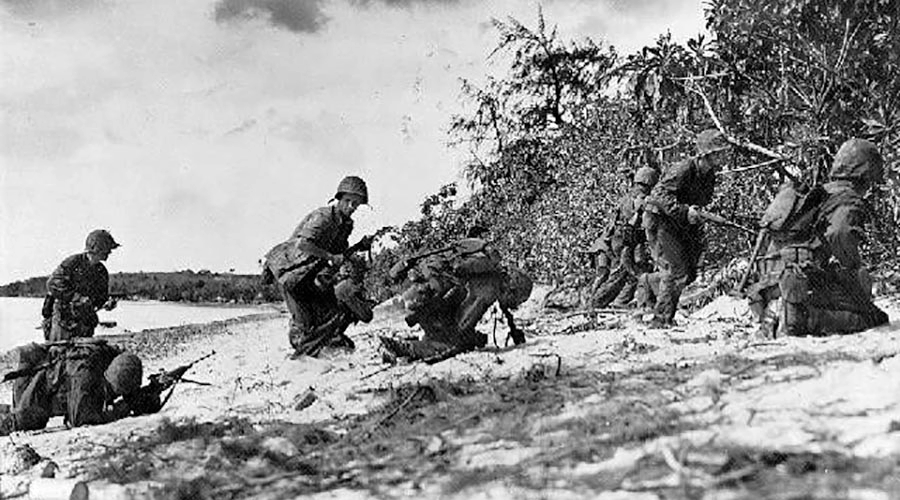 U.S. Marines Landing on Saipan, June 1944
U.S. Marines Landing on Saipan, June 1944Clearly, the Allied fire-bombings were expected to, and did, result in the deaths of many thousands of non-combatants. Although valid military targets were destroyed, these were not specifically attacked: the bombings were against entire cities.
Likewise, the atomic bombings of Hiroshima and Nagasaki were against entire cities. So, they were not just as defined by Augustine or Luther.
Our Use of Nuclear Weapons
The issue is still debated: whether the bombings were justified and whether they were moral. I was born years after that time; I am not one who, as a young man, awaited orders to be in the assault on Japan, I was not amongst those who waited on those orders with the knowledge or experience of the fighting on Saipan, Iwo Jima, or Okinawa.
I am not ambivalent to the morality or amorality of the act—I’m certain that Augustine and Luther would condemn the bombings as unjust and immoral.
Colonel Paul Tibbets was correct when he said he felt no guilt or shame for commanding the unit that dropped the weapons on Japan, or for piloting the bomber that dropped the first atomic bomb.
The crews of those aircraft and the comrades in their unit carried out the orders of responsible higher authorities.
Those who made the decisions leading up to the successful development of the weapons, designation of targets, and who gave the command to use the weapons are responsible. Ultimately, this responsibility devolved upon Harry S. Truman.
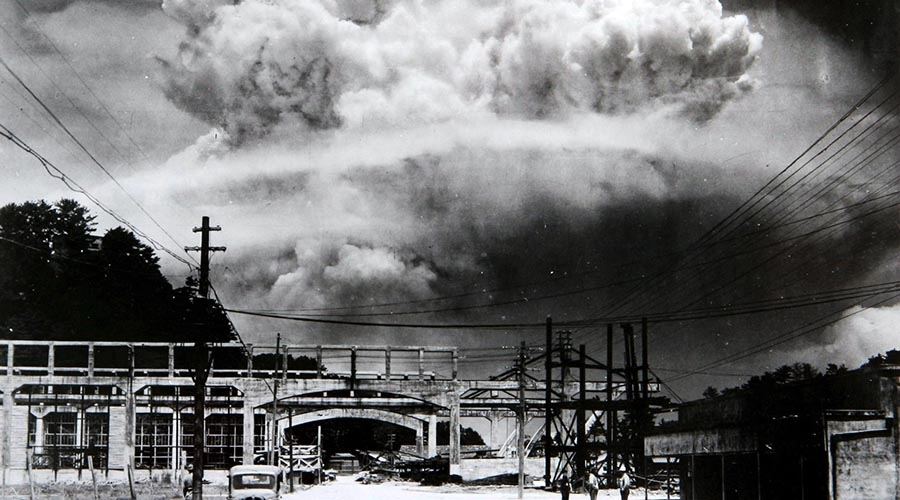 Nagasaki Atomic Bombing
Nagasaki Atomic BombingConclusion
I’m unwilling to condemn acts that, horrible as they were, ended the killing and ultimately saved so many others. It is not an easy thing to do, to describe the victims in Hiroshima and Nagasaki as blood sacrifices on the altar of Peace.
I believe that Japan ended that war because of the atomic bombs so I believe these acts were necessary—necessary evils.
I am convinced that the United States, in fighting World War II, fought a just war.
I’ve limited my discussion to the period of the Second World War in which the United States was a belligerent.
